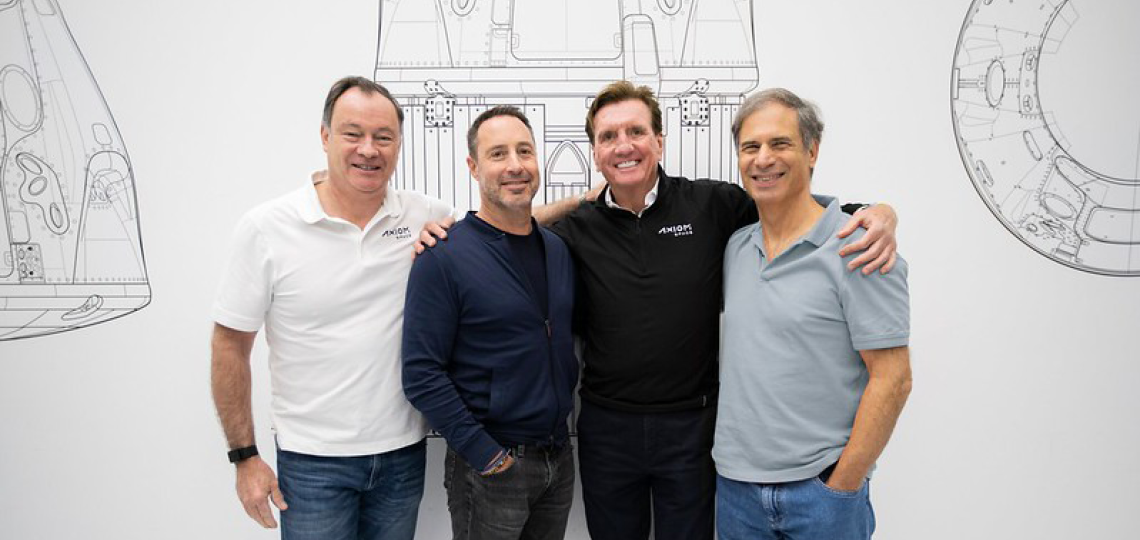TRISH to enhance research on Ax-1 mission, data on human spaceflight impacts
The Translational Research Institute for Space Health (TRISH) partnered with Axiom Space to collect biomedical data from its spaceflight participants (SFP) during the Ax-1 mission on April 8-25, 2022. A suite of biomedical research projects was administered before and after flight.
Projects
Vision Changes in Spaceflight
Investigator: Shivang Dave, PlenOptika
Co-Investigators: Eduardo Lage, PlenOptika
During spaceflight, the vision system undergoes physiologic and pathologic changes. Even short-term exposure to zero gravity causes a headward shift of body fluids, which could contribute to vision changes for space travelers. In some cases, astronauts have developed Spaceflight Associated Neuro-ocular Syndrome (SANS), a condition that affects vision. Yet the small quantity of space travelers has made studying the condition a challenge, limiting our understanding of the phenomenon. PlenOptika developed QuickSee, a portable, self-operating, low-cost, yet highly accurate binocular form factor autorefractor that can quickly measure refractive errors in the eyes and to monitor changes over time. On Earth, this technology makes effective eye prescriptions easier to obtain, especially for worldwide populations with low access to eye care. Ax-1 crew will use the QuickSee device before and after spaceflight to collect relevant biomedical data pertaining to their sight, yielding a high-value dataset for future vision research in spaceflight.
Neurocognitive Performance
Investigator: Mathias Basner, M.D., Ph.D., MSC, University of Pennsylvania Perelman School of Medicine
Co-Investigator: Alexander Stahn, University of Pennsylvania
Going into space is a stressful experience, not just for the human body, but also the mind. Increased stress can affect crew behavior and performance. Dr. Basner and his team at the University of Pennsylvania have developed a cognitive test battery for astronauts they will use to assess crew performance on a broad range of cognitive domains. Researchers will correlate cognitive test results collected pre- and post- spaceflight with health vitals collected from an Apple Watch. NASA astronauts undergo rigorous training to prepare for the stressful mission. Cognitive and physiologic data collected by the spaceflight participant could improve understanding of how the general population will behave and perform in space travel, which becomes more relevant as more spaceflight participants explore our solar system.
Re-Adaptation to Gravity After Spaceflight: Sensorimotor Testing
Principal Investigator: Mark J. Shelhamer, Sc.D., Johns Hopkins University School of Medicine
Co-Investigator: Michael Schubert, Johns Hopkins University School of Medicine
In zero gravity, astronauts lose their sense of orientation. This neurovestibular concern could cause motion sickness, nausea, and other disorienting effects. Dr. Shelhamer, of Johns Hopkins, will study how passenger’s inner ears and eyes sense motion on Earth (and how this is changed after being in space), and how to use that information to enable prediction of who will get motion sickness in spaceflight. The tests are easy to administer via a tablet computer pre- and post- spaceflight. If effective, understanding who is susceptible to space motion sickness allows steps to be taken to prevent or minimize the effects of motion sickness and disorientation, improving the spaceflight experience and safety.
About the Ax-1 Mission
Axiom Space’s Axiom Mission 1 (Ax-1) will the first-ever entirely private mission to fly to the International Space Station (ISS). Former NASA astronaut and Axiom vice president Michael López-Alegría will serve as commander with crewmates: American entrepreneur and non-profit activist investor Larry Connor as pilot; Canadian investor and philanthropist Mark Pathy; and impact investor and philanthropist Eytan Stibbe of Israel. The Ax-1 mission will include the crew living aboard the U.S. segment of the ISS for approximately eight days, participating in research and philanthropic projects.








 Credit
Credit
